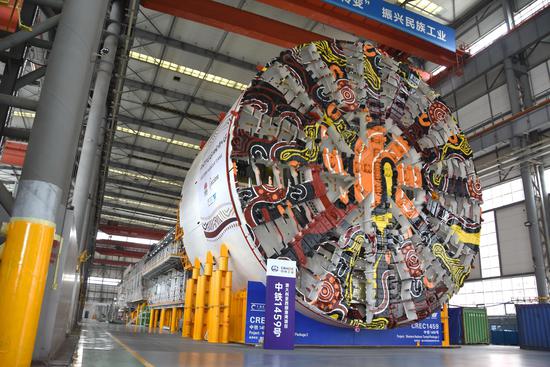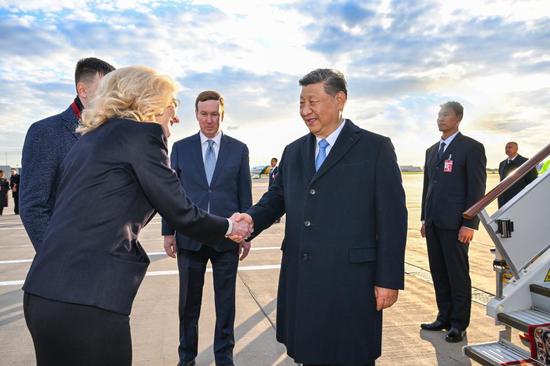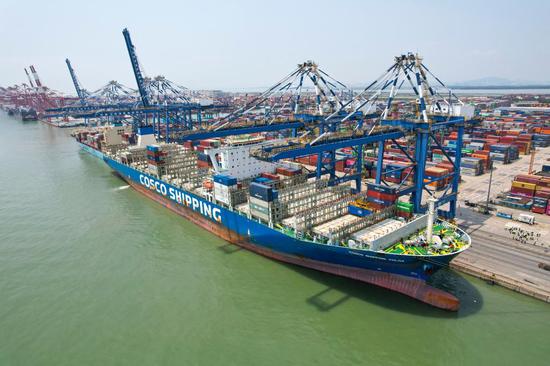Chinese companies in the United States plan to expand business operations despite geopolitical and profitability challenges, according to a survey released by the China General Chamber of Commerce – USA on Monday.
The Annual Business Survey Report on Chinese Enterprises in the U.S. tracks key performance trends and sentiment among Chinese companies with U.S. operations, based on data collected from nearly 100 Chinese firms in March to early April.
While some firms grow in size and revenue (37 percent now generate more than $100 million annually, up by 2 percentage points from 2023), the data reveals that profitability lags.
In general, the survey shows a slight margin recovery in 2024, with 43 percent of respondents reported earnings before interest and taxes (EBIT) margins between 0 and 15 percent — up from 38 percent the previous year.
The share of companies experiencing severe declines also dropped sharply, with only 10 percent seeing margins fall by more than five points, compared with 27 percent in 2023.
"The reduction in severe declines reflects better cost/revenue management," noted the report.
Still, while extreme losses have declined, most enterprises are operating with thin margins and limited capacity for reinvestment.
While 23 percent of firms reported operating margin improvements between 0 and 5 percentage points, up from 15 percent in 2023, only 7 percent achieved high margins of 15 percent or more, a significant drop from 11 percent in 2023.
Meanwhile, nearly 1 in 4 companies reported losses, with 17 percent reporting losses up to 15 percent.
A further 17 percent of companies reported breaking even, while 10 percent did not disclose or were unsure about their margins.
"High-margin performers became scarcer, while loss-makers persisted," the report said, underscoring the pressure on business fundamentals.
The survey found that 60 percent of respondents plan to maintain their current level of investment in the U.S. through 2025, suggesting a preference for stability in light of ongoing economic and policy uncertainties.
While 1 in 5 companies plan to increase investment, the same number plan reductions, indicating a split in business confidence.
Concerns about a deteriorating geopolitical environment reinforce a cautious outlook. A striking 90 percent of companies identified U.S.-China political and cultural tensions as the most pressing challenge for operations in 2025 and 2026.
"Inflation and the unstable U.S. economy," and "frictions in U.S.-China economic and trade relations" were cited by 80 percent and 73 percent of companies, respectively.
Additionally, 60 percent flagged "uncertainty in U.S. foreign investment policies" and "unstable U.S. policies toward foreign investments" as top challenges, reflecting increased difficulty and risk in investment decisions.
Asked about their key business objectives for U.S. investment in 2025 and 2026, 83 percent of companies surveyed said they aimed to improve profitability, and 70 percent reported that they planned to recover and grow their existing business, showing a strong intention to strengthen and expand current operations.
As of July 2024, CGCC's Chinese member companies have invested at least $140 billion, employed more than 230,000 people, and indirectly supported over a million jobs in the U.S., the CGCC reported.
The CGCC warned that recent tariff changes, which occurred after the survey concluded, may have deepened business pessimism even further. On Monday, China and the U.S. announced a series of tariff reductions to de-escalate trade tensions.
The U.S. agreed to remove 91 percentage points in the additional tariffs it had imposed on China, while China reciprocated by removing 91 percentage points in its additional tariffs on the U.S..
The U.S. will pause 24 percentage points of additional ad valorem duties — tariffs levied in proportion to the value of goods — on Chinese imports for 90 days, and China will do the same for 24 percentage points of its modified additional ad valorem rates of duty for imports from the U.S..
Still, a 90-day suspension, while welcome, creates significant uncertainty for both Chinese and U.S. companies' business planning and costs, analysts said.
The USCBC's 2024 Member Survey, released in September, noted that U.S. companies' financial performance in China remained healthy in 2023, with 80 percent being profitable, and a larger share (42 percent) of companies seeing revenues grow by 20 percent or less compared with the 2023 survey results (28 percent).
Looking ahead, 72 percent of respondents expected that the profit margins of their China operations will be equal to or greater than their global average in 2024, matching companies' expections in 2023, according to the USCBC survey.
At an embassy event last week, China's top envoy in the U.S. Xie Feng said that in 2022 alone, the revenue of the U.S.-owned enterprises in China significantly exceeded those of Chinese-owned enterprises in the U.S. by more than $400 billion.


















































 京公网安备 11010202009201号
京公网安备 11010202009201号